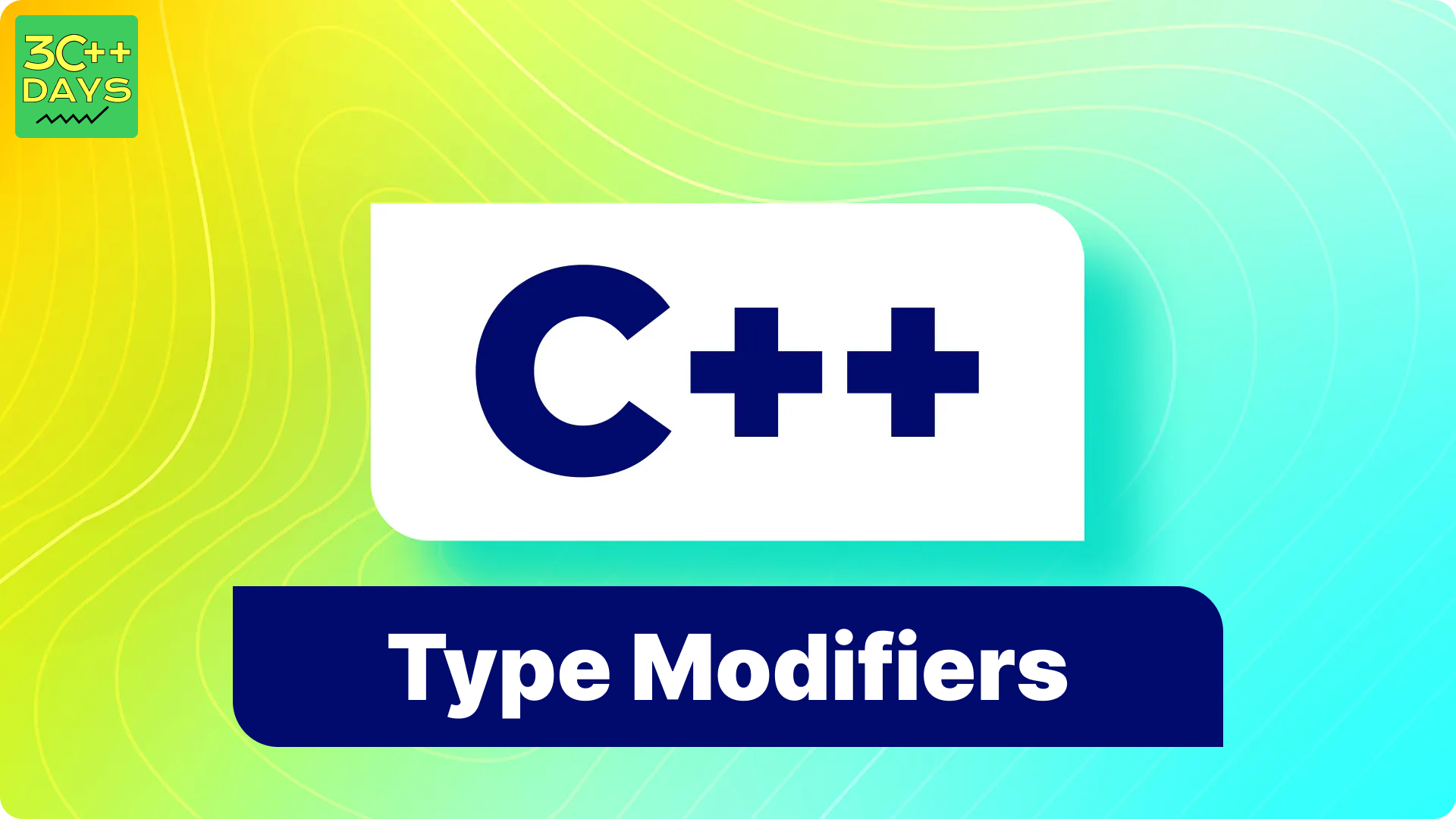Type Modifiers in C++
1. What is Type Modifiers in C++?
Type modifiers in C++ are keywords that you use to alter the meaning of the basic data types to fit specific needs of your program. They allow you to specify more precisely the properties of variables, such as their size and whether they can hold negative values. The primary type modifiers in C++ are short, long, signed, and unsigned.
2. Types of Type Modifiers in C++ with Proper Examples.
Types of Type Modifiers in C++:
shortlongsignedunsignedlong longshort intlong intlong double

3. short type Modifier
The short modifier reduces the size of the int data type. Typically, a short int is at least 16 bits.
short a; // Declares a short integer variable
short int b; // Equivalent to short a
4. long type Modifier
The long modifier increases the size of the int data type. Typically, a long int is at least 32 bits.
Example:
long a; // Declares a long integer variable
long int b; // Equivalent to long a
5. signed type Modifier
The signed modifier allows a data type to store both positive and negative values. By default, integer types are signed.
Example:
signed int a; // Explicitly declares a signed integer variable
signed char b; // Declares a signed character variable
6. unsigned type Modifier
- These modifiers can be used with
intandchardata types. Signedvariables can hold both positive and negative integers, including zero.- By default, integers are
signed, so we can directly useint. unsignedvariables can hold only non-negative integer values. Example:
signed int x = 23; // Positive-valued integer
signed int y = -13; // Negative-valued integer
unsigned int u = 2; // Positive-valued integer
7. long long type Modifier
- The
long longtype modifier can be repeated twice to create thelong longtype. - It is used for even larger numbers than
long. - This modifier can only be used with
int. Example:
long long num = 12345678; // Very large integer
8. short int type Modifier
- The
short inttype modifier is used to create a smaller integer variable that occupies less memory than a regularint. - It restricts the range of values that can be stored in the variable.
- A
short inttypically uses two bytes of memory. Example:
short int smallNumber = 12345;
9. long int type Modifier
- The
long inttype modifier is used to create an integer variable that can store larger values than a regularint. - It extends the range of values that an int can hold.
- A
long inttypically uses four bytes of memory (32 bits). - The range of a long int is -2,147,483,648 to 2,147,483,647.
- The format specifier for
long intis%ld. Example:
long int largeNumber = 1234567890;
10. long double type Modifier
The long double modifier is used for large floating-point numbers.
Example:
long double c = 0.333333333333333333L; // Large floating-point number